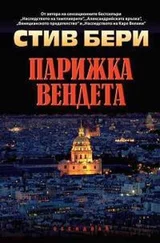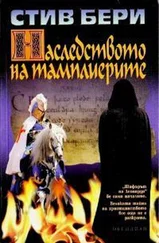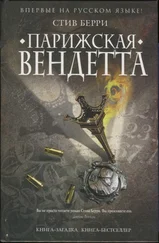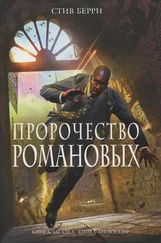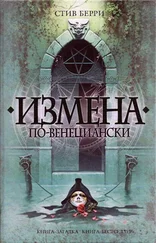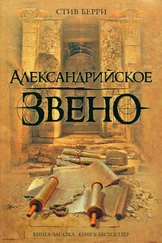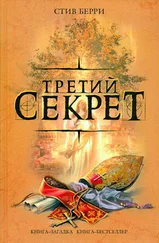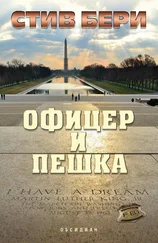The room went silent for a moment.
“Bormann possessed a great hatred for the follies of man,” Schüb said. “All who knew him were aware of that fact. No tolerance for frailty or passion, no mercy for evil, no pity for those who’d done him harm. He wished his enemies to hell, and put them there in his heart. He was, quite simply, a man of wrath. Theodor is exactly the same.”
“Yet you served Bormann until he died.”
Schüb took a disconsolate stroll around the stacks of gold bars, eyeing the gleaming metal in the cool white glow of the overhead fluorescent fixtures. “I served him. I even profited from him. All of this gold was re-smelted from its original shape and source, stamped with prewar markings to disguise its origins. But who knows what evil brought it here. I am now prepared to do what has to be done to right at least some of those wrongs.”
“What do you propose? We can’t prove anything. We have no bodies for DNA testing. Only this gold and your word.”
“That is not true.”
Now he was interested. “I’m listening.”
Schüb motioned to a corner of the vault. Cotton’s attention had been on the obvious and he’d failed to notice a wooden crate against the far wall. He followed Schüb around the stacks and glanced inside.
“I told you that toward the end of his life Bormann and Theodor communicated more frequently. To facilitate those encounters, Bormann started writing down his thoughts. He did this while serving Hitler also. He was obsessive about note-taking. The savior of the administrator, he would say. He created meticulous journals, textbooks he called them, for Theodor to study. We even used a set of forgeries in Chile with Combs and Wyatt. They’d been prepared a few years before to thwart another pair of nosy eyes and ears. Being forgeries came with the ability of allowing them to be discovered, which would totally discredit anyone who tried to claim them as real.”
“Provided the forgers remained silent.”
“None lived to an old age.”
He got the message. “I take back what I said about you in Africa. You’re not strange. You’re dangerous.”
“I was taught by one of the most ruthless men in the world, and I learned many things from him.”
That he could believe.
“After Bormann died,” Schüb said, “I gave many of the originals to Theodor, but kept a sizable number for myself. Also, the Widow maintained private diaries that she gave me for safekeeping. They tell her story far better than I ever could. But as I said, she knew nothing of her children. Her thoughts are of Hitler, Bormann, and what fate had prescribed for her. Bormann’s journals, though, are far more extensive.”
Cotton glanced into the open crate and saw that there were a number of leather-bound notebooks of varying shapes, sizes, and colors, all in remarkably good condition.
“I stored them carefully. They have been here for decades. I assure you, each is authentic and can sustain any test an expert cares to impose. Verified handwriting samples of Bormann and Braun would be easy to obtain for comparison, and the paper and ink are of the period.”
He lifted out one of the books and parted the cover, studying the heavy, clearly male handwriting. He read some of the first entry. Bormann was lamenting about Khrushchev and how communism could never succeed. “This was written in the 1950s?”
“Not at all. Bormann penned most of these in the 1970s. His diction and syntax only create the illusion they were written contemporaneously. Remember, Bormann dealt in the realm of fantasy. He was a butcher and a murderer who thought himself brilliant, and he made himself so through hindsight.”
“Which made Pohl believe he was a genius.”
“Something like that. I read these journals with amusement. More of Bormann’s pedantic personality.”
He tossed the book back into the crate. “So they’re historically useless. Am I, too, being manipulated?”
“The time for lies is over,” Schüb said. “I brought you here to see this. You’re the first person ever so privileged. I also want you to read one passage from the journals.”
The old man reached down and removed another of the notebooks.
“More fiction?” he asked.
“No. This is real. I remember purchasing this notebook on one of my monthly trips to Johannesburg. I was to always buy half a dozen, never similar, and never at the same location. I found this one at a bookstore, near the post office, in the winter of 1956. It has rested here, on top, for a long time.” Schüb handed him the volume. “The relevant part is marked.”
He accepted the book and carefully opened to the page indicated. The leather binding cracked from the strain. More of the same male handwriting filled the sheet.
He read.
“I watched Bormann write those words myself,” Schüb said.
He kept reading. His gaze halted, reversed itself, then scanned the lines again. He looked up in amazement.
“This can’t be.”
“As I said, this is the time for truth. Not only can it be, it is.”
CHAPTER SIXTY-TWO
MUNICH, GERMANY
8:30 P.M.
Marie tried hard to concentrate on the opera. She was sitting in the Residenz Theater, the quadrangular hall a rococo gem lined with gilded colonnades and elaborate loges that ran from floor to ceiling. Mozart himself once commanded this stage, which for centuries was the Bavarian king’s court theater. Now it was owned by the state. Tonight’s performance was a black-tie affair involving some of the wealthiest people in southern Germany. The mood was high and festive, the event an annual spectacular. With the national elections upcoming she and Theodor Pohl had been invited and both were in attendance, one of the few joint appearances they would make until their debates. But the gala was billed as a night for charity without politics.
Which was fine by her.
Tonight was definitely not going to be about politics.
The music rose and fell with bursts of melody, sinking into hushed chords before pealing forth in basso profundo. The opera was in three acts, each more profound than the other. The symbolism was evident, and she almost smiled at the choice of performance. A wicked countess and her niece, who both wore silk shawls, the niece casting hers away—in essence throwing off the yoke of aristocracy, becoming, as the lyrics noted, an honest burgher maiden once again.
Interesting.
And prophetic.
She glanced across the darkened theater toward Pohl. He sat in a similar red velvet chair, both of them on the same level, with the same view. On the wall to Pohl’s right loomed a sculpted Virgin standing on the moon, beneath which was a half-faced devil appearing in great discomfiture. At the moment she felt like that devil, her position equally as oppressed. Her opponent sat straight and still, his attention on the stage. She wondered what he was thinking. Nothing she’d read or been told about him indicated any great love for the arts. She doubted if he even understood the performance.
She glanced around the darkened hall.
Strange, but she did not feel drawn to any of the wealthy patrons. She felt a greater kinship to the panting old ladies with bows in their hair who ran the garderobe, and the frock-coated pensioners who held the key to the loge, and the younger gentlemen, dressed in tails, who’d shown them to their seats, and, even more so, to the dear hausfraus who cared for the patrons as if they were intimate friends. They were the backbone of Germany. The men and women who toiled to sustain a grand culture.
And she must never forget them.
On one count Pohl was right. None of those people bore any direct responsibility for what happened from 1933 to 1945. That was the folly of another generation, and too few of them remained to really matter any longer. What the people in the hall and the rest in Germany bore was the burden of assuring that nothing like that ever happened again. And the man sitting across the hall from her, still staring down at the stage, was a direct link to that awful past.
Читать дальше

